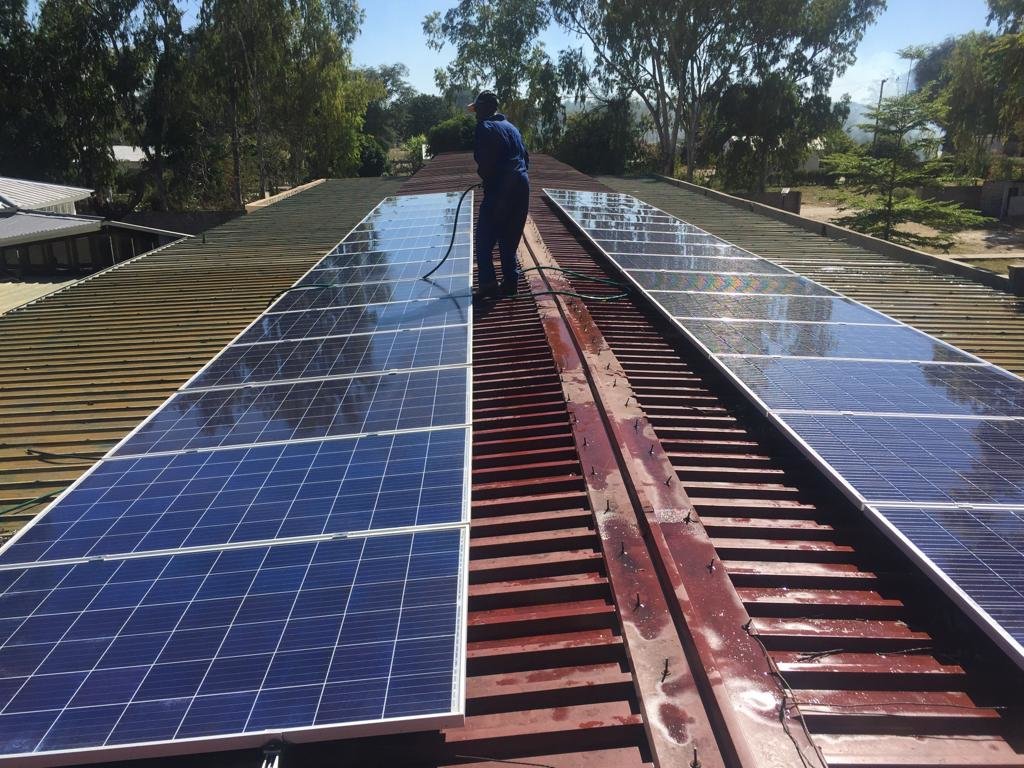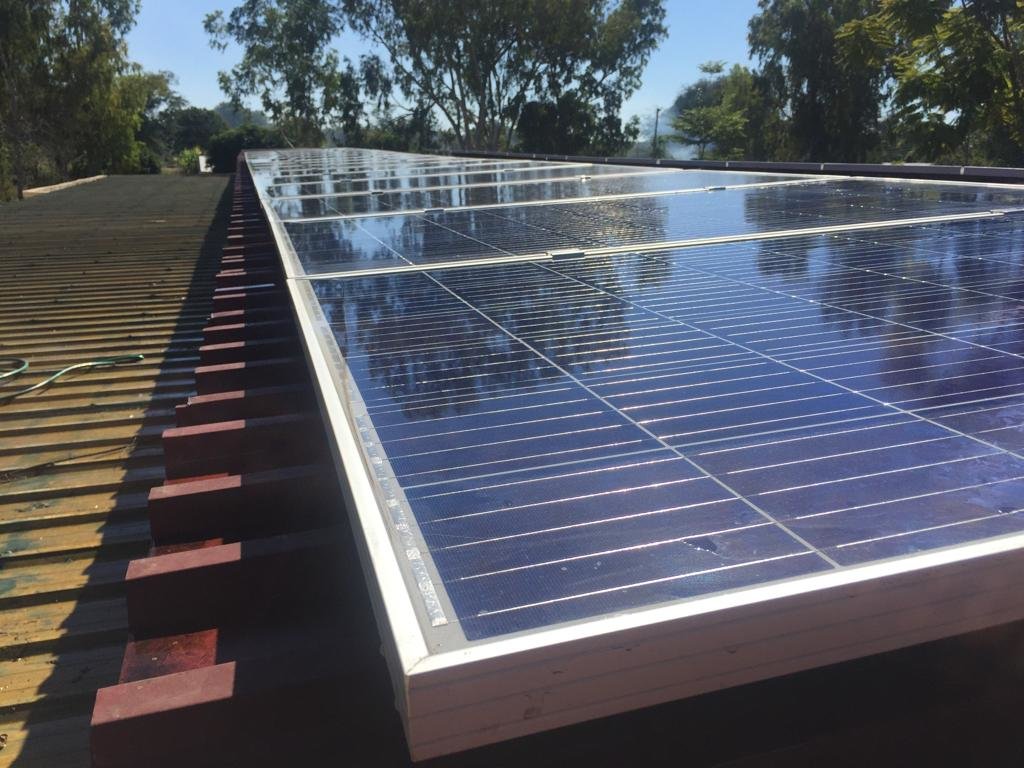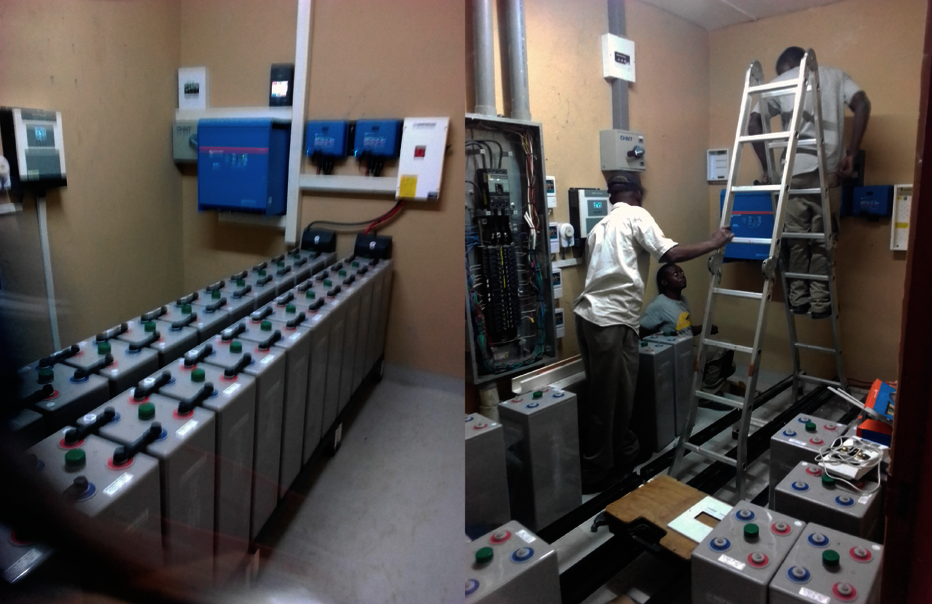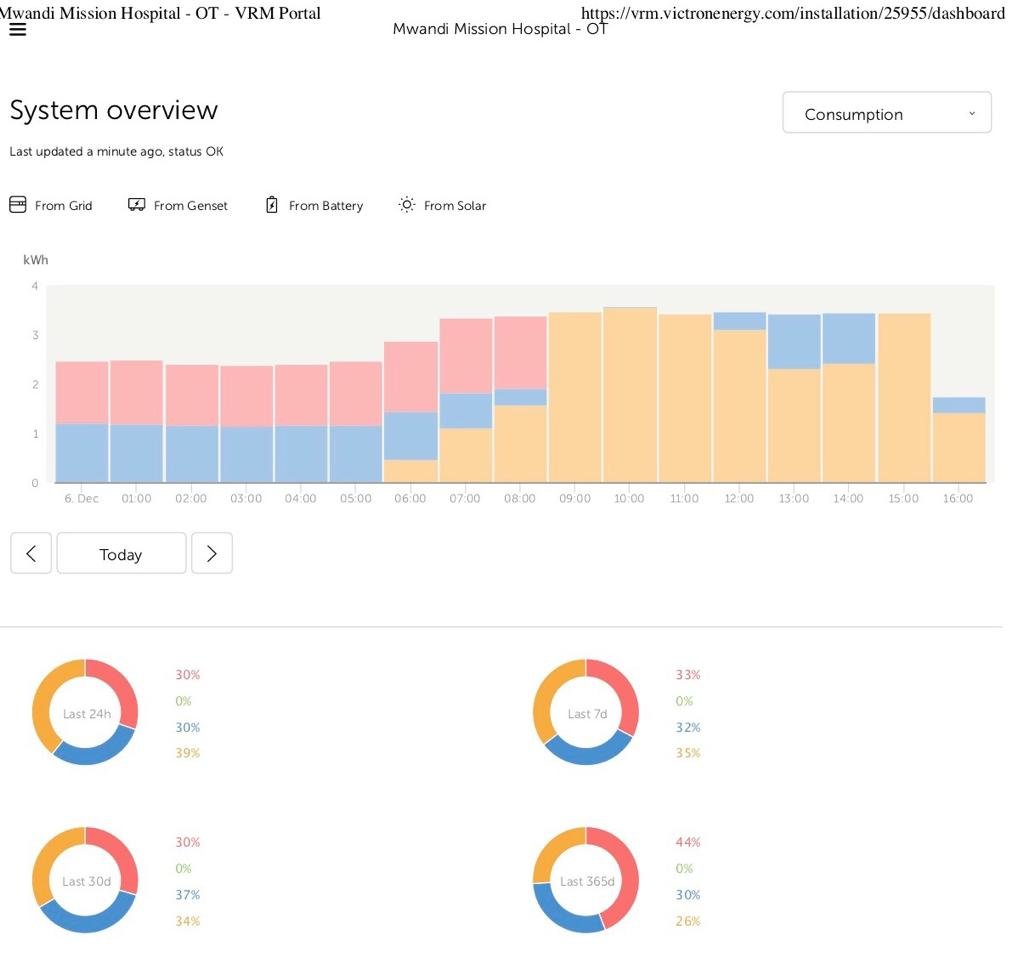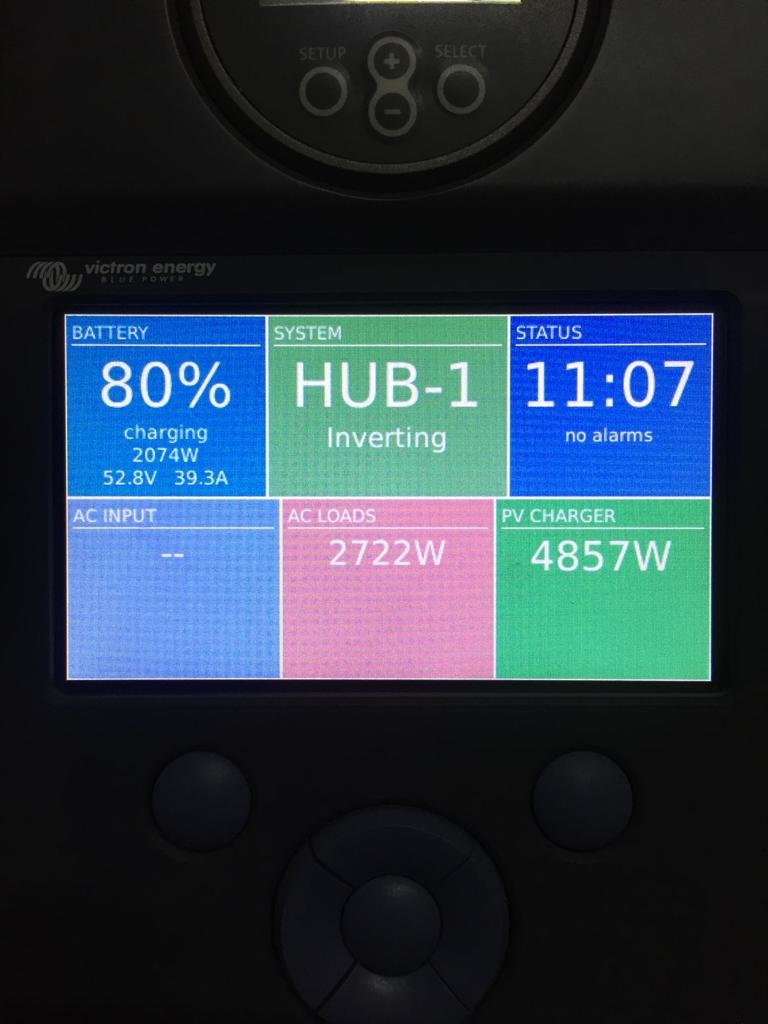By VERNA CASE | Project Leader
In our original description of Solar Project Saves Lives, we discussed factors that make the solar power project at the Mwandi hospital especially crucial for the health of its patients. Two very important factors are the:
The 2019 drought in Zambia is the worst in 40 years. As a result, ZESCO is imposing mandatory power outages (up to 18 hours per day) in many areas of the country and is increasing its tariffs on electricity by 75-100%. Given recent history, Zambia's current environmental crisis will probably not be its last. For these reasons, the use of alternative sources of power is imperative, especially for healthcare institutions. During recent load-shedding, some hospitals have been limited to four hours of power each day. Thankfully, Phase I of the Mwandi hospital’s solar project was completed in 2018 and the main hospital building now gets 56% of its power from the installed solar panels. [The first graph illustrates one day's consumption of power from each of three sources - solar panels, solar batteries, and ZESCO. The second graphic is a snapshot of power generated by solar panels at 11 in the morning.] Because of the supplemental solar power, general care of ward patients has not been severely affected by ZESCO outages. The success of Phase I demonstrates that solar power is a reliable alternative to hydroelectric power in Western Zambia. The hospital will now proceed with Phase II of the solar project so that patient care in all areas of the hospital will benefit.
The first step in Phase II will begin in 2020. This step will add a second identical system to the Phase I system now supplying the main hospital building. [See the attached pictures of the Phase I solar panels and batteries that will be duplicated.] By adding a duplicate system, the generated solar power will be doubled. With both the original and duplicate systems supplying solar power, 100% of the electricity needs of the main hospital building will be met.
Thereafter, a stepwise progression of the project will continue until solar power is supplied to the entire hospital compound. The solar engineers also predict that the completed solar project will produce more electricity than will be needed for hospital functions. The hospital will be able to sell the excess power to ZESCO and use the income to purchase drugs and other consumables that are now in short supply.
With your support, solar power will continue to improve patient care in Mwandi, Zambia in many foreseen and unforeseen ways. We thank you for your generous contributions!
Project reports on GlobalGiving are posted directly to globalgiving.org by Project Leaders as they are completed, generally every 3-4 months. To protect the integrity of these documents, GlobalGiving does not alter them; therefore you may find some language or formatting issues.
If you donate to this project or have donated to this project, you can receive an email when this project posts a report. You can also subscribe for reports without donating.
